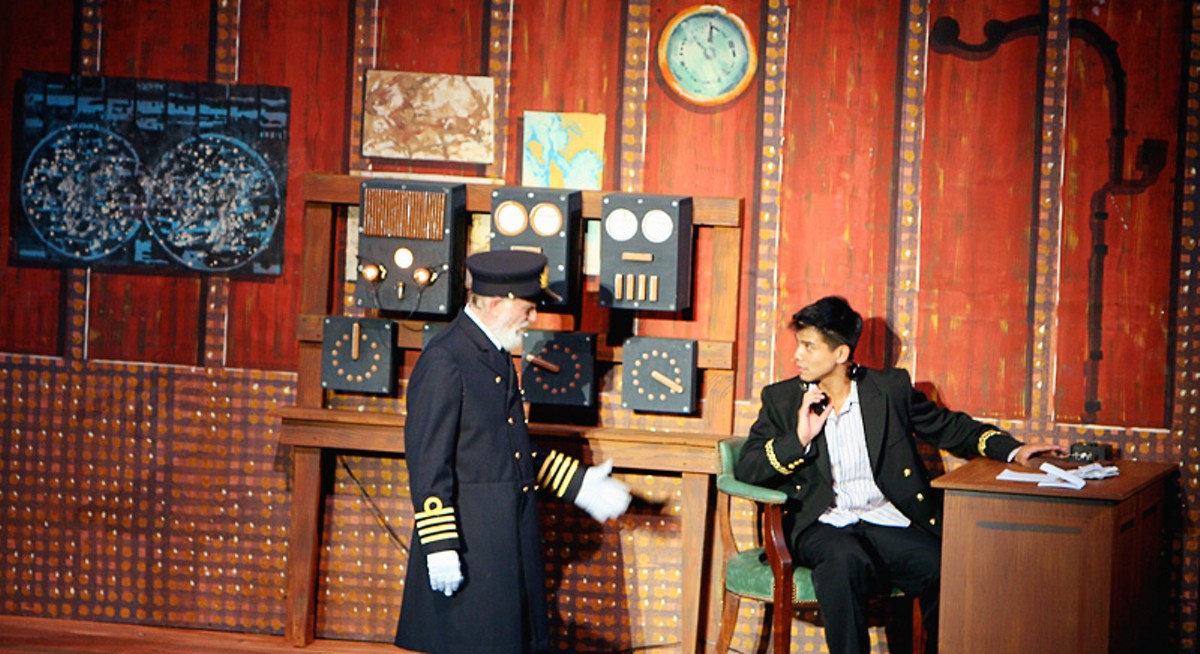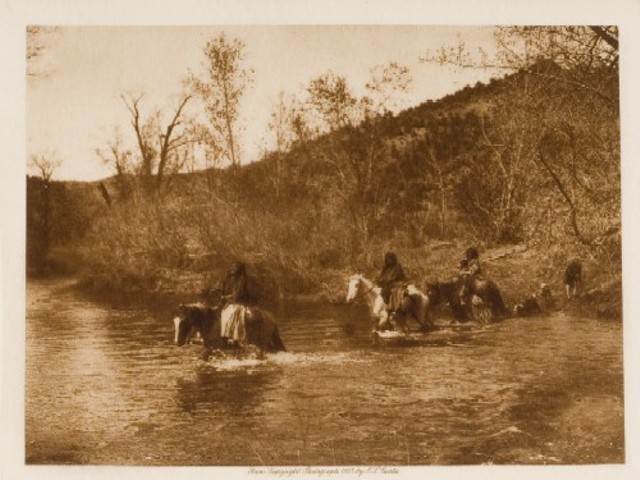Midway into Act One of Titanic, the Tony Award-winning Best Musical of 1997 that is receiving its debut Muny staging this week, a shy radioman sings, "And the night was alive with a thousand voices." Although he is alluding to the wonder of Marconi's telegraph, this week the Muny is alive with what sounds like a thousand voices, all blending beautifully to create a thrilling wall of sound, the likes of which has not been heard in Forest Park since that long-ago era when shows like The Student Prince and The Desert Song filled the air. Titanic reconceives that classic integration of orchestra and voice for which the Muny itself was created 92 years ago.
In the nine decades since the Titanic, at the time the largest floating object in the world, struck an iceberg and sank during its maiden voyage in April 1912 — a disaster so sudden, cataclysmic and inexplicable that the ship's demise became a monument to the folly of human presumption — the saga has been chronicled in scores of books and nearly a dozen motion pictures. Now this unlikely musical. Maury Yeston's kaleidoscopic score includes soaring ballads, resplendent anthems, sprightly rags and dreamy waltzes. Yeston wrote lazy songs for millionaires, angry songs for boiler-room stokers. From the very first minute, when ship designer Thomas Andrews (a commanding Tom Hewitt) compares his 25,000-ton leviathan to miracles of invention like the pyramids and Stonehenge, it is clear that this musical is pursuing something beyond mere narrative. The Titanic disaster reminds us that not even the reach of science (steel) can stave off the long arm of a wrathful god (ice).
"What a remarkable age this is," one song proclaims. According to Peter Stone's economical script, it was an era marked by "greed, compromise and compliance" — all of which led directly to this titanic North Atlantic nightmare. Yet here on this vessel, just a few decks below the much-pampered passengers in first class, immigrants in steerage personify the purest kind of idealism. They are traveling not to the United States, but rather to America, where (or so they want to believe) even the poorest lives can be transformed.
This Muny production, which has been directed by Don Stephenson (who acted in Titanic on Broadway) and which is being conducted by Kevin Stites (the show's original music director), is more airtight than was the ship itself. Stephenson and Stites have flogged the cast into a state of precision. Listen to how these singers enunciate lines like "Shi-P of dreams." An actor drops a P or a T at the end of a word at his or her peril. And because the cast has taken up the gauntlet of excellence, they exude an almost tangible sense of pride that comes from knowing they're contributing to something memorable.
In between the ensemble numbers, Titanic is an evening of vignettes. Henry Stram is especially poignant as Henry Etches, the very proper first-class steward. In one scene Mr. Etches learns the ship is going to sink, must accept his own death, then must put on a façade for his passengers as he tries to reassure them all is well — while at the same time insisting that they wear their life preservers. So many layers here for an actor to navigate in a very brief scene, and Stram pulls it off marvelously. Michele Ragusa finds charm in the social-climbing second-class passenger Alice Beane, a role that in lesser hands can be merely irritating. As the ship's stoker, Ben Crawford sings the stuffing out of a song that likens the gloom of a coal mine to the Titanic's boiler room. Telly Leung brings a touching sincerity to the role of the radioman who sings the haunting ballad "The Night Was Alive."
Almost perversely, this musical's uniqueness is also its key flaw. Because no single passenger or crew member is more important than another, ultimately we are expected to make an emotional connection to an event rather than to people. You could feel this disconnect at the end of opening night, when the appreciative audience wanted to rise during the curtain call but waited in vain for an actor to appear onstage who merited a conventional standing ovation.
There is nothing conventional about Titanic, not even its cumulative effect. So kudos to the Muny for taking it on. The production delivers an evening of challenging musical theater whose very ambitions are as vast as the Muny stage itself.






